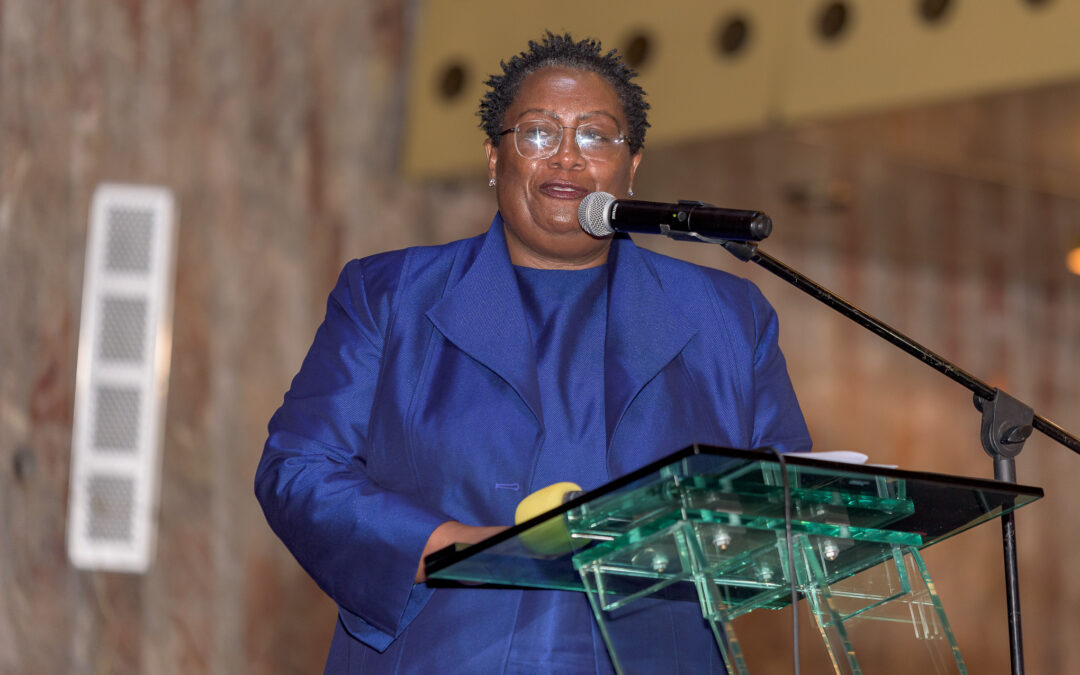
Jan 30, 2020 | News
The ICJ, in collaboration with the Zimbabwe Judicial Service Commission (JSC), convened an Anti-Corruption workshop from 27-30 January 2020.
The objective was to enhance the capacity of judicial and law enforcement officials and prosecutors in respect of their roles in anti-corruption prevention and enforcement and cyber-crime investigation.
The workshop was led by Hon. Justice Lawrence Gidudu, the Head of the Anti-Corruption Division of the High Court in Uganda, who was assisted by Moses Modoi a lawyer specializing in research and capacity building that supports anti-corruption courts.
In his keynote address, Hon. Mr Justice L. Malaba Chief Justice underlined that participation by key justice actors showed commitment towards the fight against corruption.
He noted that the education and training aspects aimed to create a common understanding of standards and techniques to be applied when handling corruption matters.
He expressed the sentiment that there were lessons to be learned from the Ugandan Court which currently has had a high success rate in corruption cases.
The training workshop is part of the ICJ’s wider efforts to ensure access to justice for all in Zimbabwe and elsewhere.
The main focus here was on the global outlook and emergency of anti-corruption action; analysis of municipal Anti-Corruption legislation; managing trials in anti-corruption courts, corruption as a transnational crime, admissibility of digital evidence; asset recovery and ethics and integrity.
There were 49 participants in the portions of the workshops from 27-28 January, including 18 women, comprising Judges from the Zimbabwe High Court; Regional, Provincial and Senior Magistrates; and Registrars from the Superior Courts.
Photo: Justice Loice Matanda-Moyo, Chairperson for the Zimbabwe Anti-Corruption Commission Justice Loice Matanda-Moyo
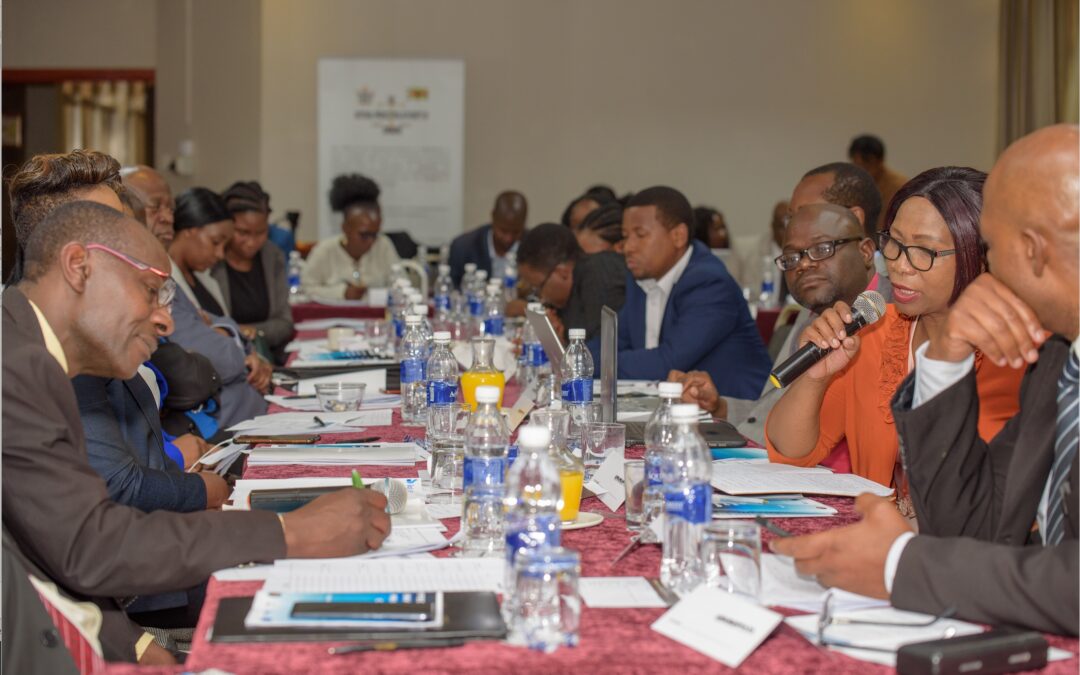
Nov 16, 2019 | News
The ICJ, in collaboration with the Zimbabwe Anti-Corruption Commission (ZACC) and the National Prosecuting Authority (NPA), convened a two-day workshop on 14-15 November 2019. The objective of the workshop was to strengthen the capacities of investigators and prosecutors to effectively investigate and prosecute cases of corruption.
The Deputy Chairperson of ZACC Mr Kuziva Murapa, noted that the training as meant to impart critical skills to the investigators and prosecutors in the fight against corruption. He noted further that the two institutions were being trained together so as to exchange knowledge and create a common understanding of standards and techniques to be applied when handling corruption matters. Noting that the Commission‘s powers include cooperation with other law enforcement agencies, Mr Murapa urged ZACC and NPA to cooperate in the fight against corruption in Zimbabwe.
The training workshop is part of the ICJ’s in-country programming which aims to increase transparency and integrity in the justice delivery in order to increase access to justice for all especially women and marginalized and disadvantaged groups.
This training workshop focuses on crimes associated with corruption, evidence gathering, expert evidence, understanding forensic audit reports, criminal procedure, the importance of closing submissions, regional and international standards for combatting corruption and asset forfeiture.
The participants for this meeting included; 20 investigating officers and 20 prosecutors stationed in Harare. Overall, there were 20 female and 23 male participants in attendance at the workshop.
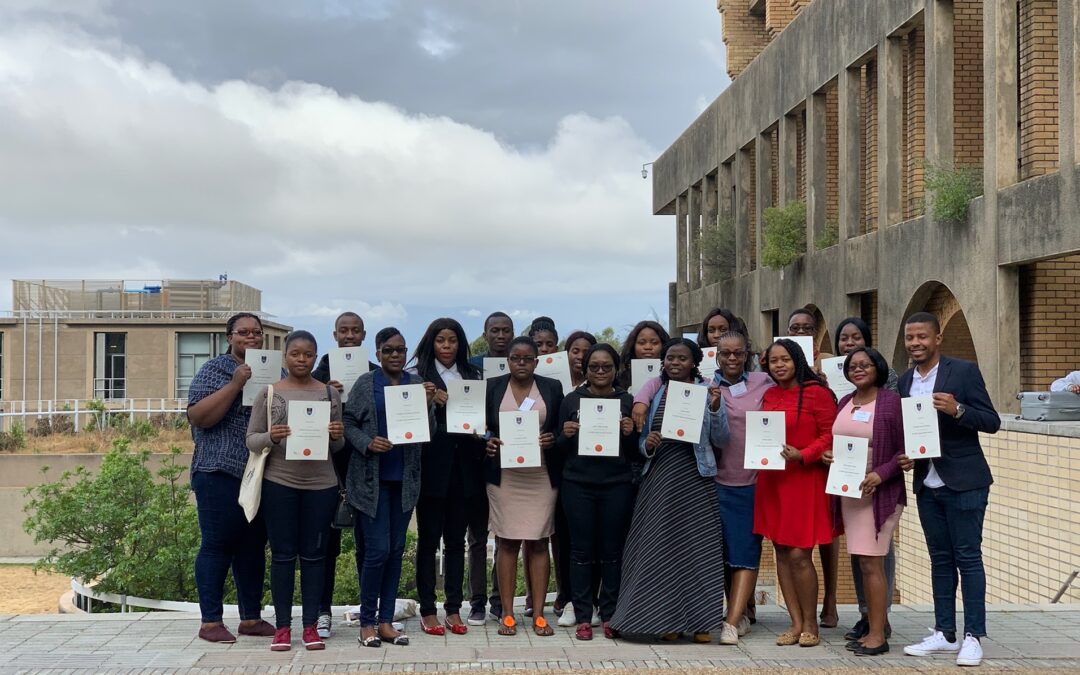
Oct 24, 2019 | News
The ICJ in collaboration with the Judicial Institute of Africa (JIFA) and Democratic Governance and Rights Unit (DGRU) convened a three-day training workshop for Zimbabwe court researchers.
The training workshop was held from the 21 to 23 October 2019 at the University of Cape Town, South Africa.
The judicial research programme is an initiative that was established to increase the research capabilities of the researchers, which would in turn improve the jurisprudence emerging from the courts.
Court researchers play a crucial role in the development of Zimbabwean jurisprudence through the work they undertake on behalf of the judges.
Furthermore, the increased efficiency that they bring to the courts allows judges to expend more of their efforts on well-informed analysis and administration of cases.
This brings a better quality of justice and reduces waiting periods for judgments and case backlog.
Arnold Tsunga the Director of the Africa Regional Programme of the ICJ remarked that “given the importance of the space that these researchers occupy, it is important to ensure that their legal knowledge and skills continue to be relevant and comprehensive so that they can provide a service of quality that adequately responds to the needs of judges. This in turn will also contribute to attainment of the UN Strategic Develop Goal (SDG) 16 and 5 on access to justice for all as well as SDG 5 on leaving no one behind.”
The areas of discussion for the three-day training workshop focused on judicial ethics, accessing judgments, accessing research materials, judgment writing and memo writing.
The training workshop was facilitated by judges, university teaching staff, and external resources. Twenty researchers are took part in the training workshop, including 17 women.
Contact
Arnold Tsunga, t: +26377728 3248; e: arnold.tsunga(a)icj.org
Rumbidzai Muyendesi, t: +263771666579; e: rumbidzai.muyendesi(a)icj.org
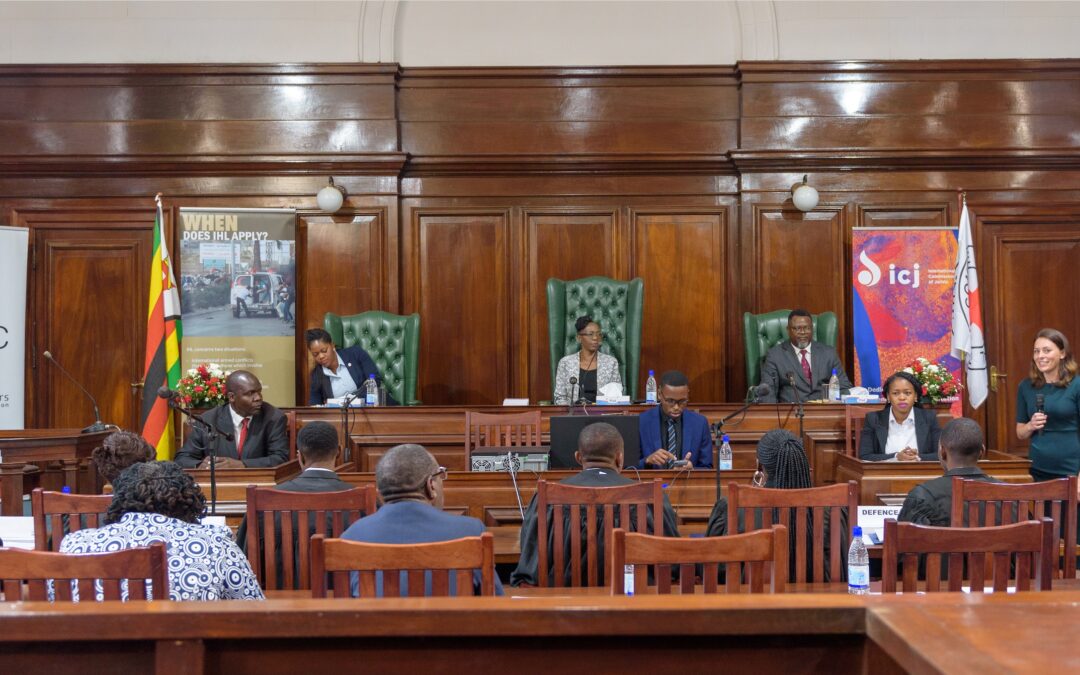
Oct 11, 2019 | News
The ICJ in partnership with the International Committee of the Red Cross (ICRC) convened the 2019 International Humanitarian Law (IHL) moot court competition.
The IHL moot court competition brought together 12 law students from Great Zimbabwe University, Midlands State University, University of Zimbabwe and Zimbabwe Ezekiel Guti University; to engage with IHL issues.
The Great Zimbabwe University students won the competition and will participate in the All Africa Moot Court Competitions to be held in Arusha, Tanzania representing Zimbabwe.
Moot Court competitions are a part of the philosophy of developing a conscientious lawyer and contributing to law graduates who have an affinity for defending human rights and the rule of law. IHL incorporates human rights principles in times of war. As a result, understanding IHL allows students to have an understanding of the application and limitations of human rights during times of war. The moot court competitions additionally equip the students with an invaluable opportunity to develop key advocacy skills.
“The moot competition gives law students the opportunity to have experiential learning and can be one among an array of interventions that could be done to supplement the university education of lawyers in Zimbabwe that has not been very strong on human rights and humanitarian law,” said Arnold Tsunga, Director of ICJ’s Africa Regional Programme.
The competition was held from 8 October to 11 October 2019. On 8 October the law students underwent an advocacy boot camp which was a full training day on advocacy skills. The four law faculties participated in a preliminary round on 9 October. The top two, Great Zimbabwe University and Midlands State University qualified for the final round. The winning team, Great Zimbabwe University will participate in the All Africa Moot Court Competitions which brings together IHL national champions from all over Africa.
The competition was supported by the European Union.
Contact
Arnold Tsunga, t: +26377728 3248; e: arnold.tsunga(a)icj.org
Rumbidzai Muyendesi, t: +263771666579; e: rumbidzai.muyendesi(a)icj.org
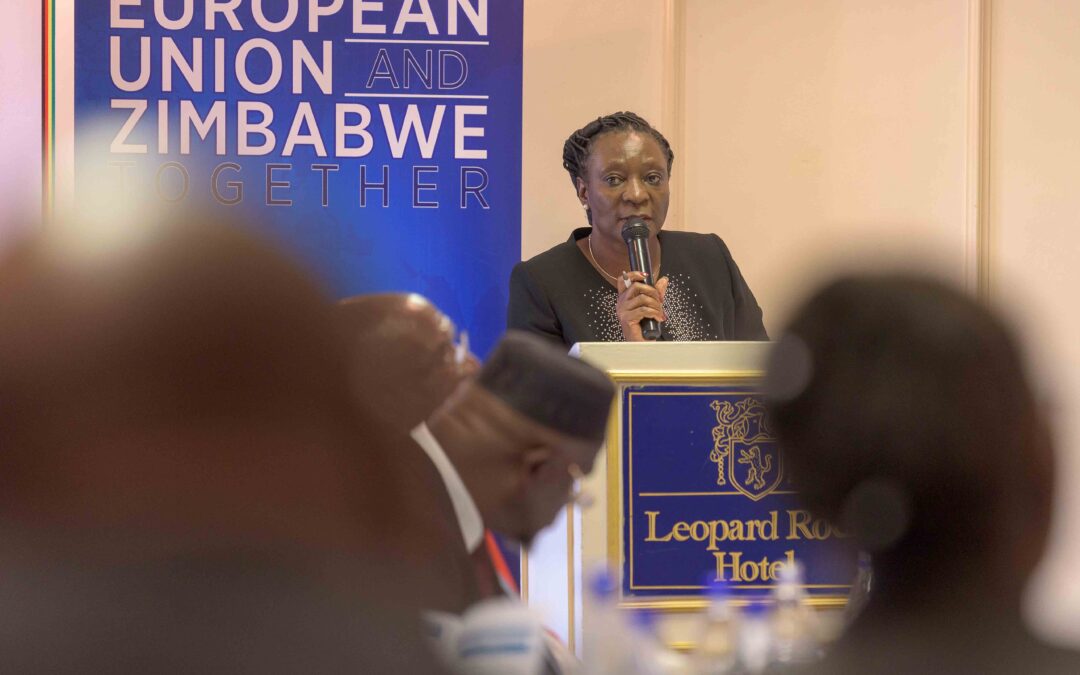
Sep 13, 2019 | News
The ICJ, in collaboration with the Judicial Service Commission (JSC) of the Republic of Zimbabwe, has concluded a two-day Judicial Symposium on the theme ‘Core-Skilling: Towards a Human Rights Jurisprudence’, organized to mark the end of the second judicial term in the Zimbabwe judicial calendar.
In his remarks at the opening of the symposium, ICJ’s Africa Regional Director, Mr Arnold Tsunga, noted that the theme of the symposium had been carefully chosen to enhance discourse on national transformation in an atmosphere of respect for the rule of law and international human rights. He noted further that the symposium was to critique the concept of transformative adjudication and explore its relevance to applying the Constitution of Zimbabwe as an instrument and framework for national transformation.
Noting that the ICJ appreciated its on-going partnership with the JSC in Zimbabwe, Mr Tsunga expressed the hope that the training and symposium would enhance the effectiveness of the judiciary with a view to improving access to justice for all, especially victims of human rights violations, women, marginalized and vulnerable groups and contributing to attainment of the United Nations Sustainable Development Goals number 16 and 5.
On his part, in his opening remarks the Chief Justice of the Republic of Zimbabwe, the Hon. Chief Justice Malaba, noted that the ICJ-JSC organized symposia have provided a platform for continuous improvement of judicial work and networking amongst judges.
Chief Justice Malaba observed that these meetings have enabled judges to dialogue on how to improve the effectiveness and efficiency in the justice delivery system. He noted that this year’s theme on human rights jurisprudence lies at the heart of an independent and effective judiciary.
He further noted that the current Constitution of Zimbabwe has a better framework and potential for the protection of human rights than previous constitutions. Accordingly, he expressed the view that the judiciary has a more important role to play in protecting and safeguarding human rights.
He highlighted that the judiciary’s commitment to the protection of human rights is evidenced in local jurisprudence in respect to human rights cases, where several important judgments have been given by all the courts.
Chief Justice Malaba used the opportunity to give updates on developments which were taking place within the JSC, particularly in its research centre, in the High Court, in the Fiscal and Tax Appeals Division, amendments to the Judicial Laws which were gazetted on the 9th of September 2019.
Chief Justice Malaba stated that in performance appraisal, the JSC has constituted a Performance and Training Committee led by the Deputy Chief Justice to come up with a system that enables accurate measurement of the performance of judges.
Responding to issues of accountability raised by the Chief Justice, ICJ’s Mr Tsunga urged the JSC to develop and adopt a system to track, monitor, document and communicate results arising from these trainings, as the results would help the ICJ, and international development partners to evaluate the usefulness of the trainings and efforts at justice sector reforms.
This year’s symposium was attended by 16 female and 27 male judges from the Constitutional Court, Supreme Court, High Court, Labour Court and Administrative Court of Zimbabwe.








